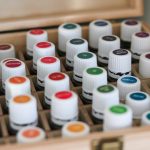Natural Remedies for Common Ailments: Effective DIY Health Solutions
Exploring natural remedies for common ailments can offer a practical and often affordable solution to everyday health issues. From headaches to sore throats, there’s a multitude of DIY health solutions that utilize ingredients you might already have at home. Embracing these natural methods can not only relieve symptoms but also promote overall well-being.
Herbal teas, essential oils, and simple kitchen staples can be powerful allies in your health routine. For instance, a ginger tea can help soothe digestive troubles, and honey can act as a natural antibacterial for minor wounds. These time-tested remedies have been used across cultures for centuries, providing a holistic approach to health.
Whether you’re looking to supplement your current treatments or seeking alternatives to over-the-counter medications, the world of natural remedies has something for everyone. By incorporating these strategies into daily life, individuals may find relief and boost their body’s natural healing processes.
Understanding Natural Remedies
Natural remedies, rooted in historical practices and traditional medicine, emphasize the use of herbs, essential oils, and other natural substances for health benefits. Their increasing popularity stems from their holistic approach and minimal side effects.
The Philosophy Behind Natural Healing
Natural healing bases its philosophy on the belief that the body has an inherent ability to heal itself. This approach focuses on enhancing this self-healing process using natural resources. Practitioners often emphasize the importance of balance, whether it’s through diet, exercise, or the use of specific herbs.
Traditional systems like Ayurveda and Traditional Chinese Medicine have long histories and detailed protocols for using plants and natural substances to prevent and treat illnesses. These systems take into account the individual’s overall well-being, not just isolated symptoms. This holistic view considers the interconnectedness of mind, body, and environment.
Efficacy and Safety Considerations
When considering natural remedies, it’s important to weigh their efficacy and safety. Scientific studies on many natural remedies support their benefits. Chamomile, for example, has shown effectiveness in reducing anxiety and aiding sleep.
However, not all remedies are free of risks. Some herbs can interact with prescription medications or cause allergic reactions. Therefore, it’s crucial to take precautions and consult healthcare providers before starting any new treatment.
Safe use of natural remedies involves understanding their proper dosages and potential side effects. Responsible use ensures that individuals can enjoy the benefits while minimizing risks.
Herbal Remedies
Herbal remedies offer natural alternatives for alleviating various common ailments. Using widely available herbs, one can address health concerns like headaches, digestive issues, and stress.
Common Herbs and Their Uses
Many herbs have been used for centuries to treat different health problems. Chamomile can soothe insomnia and anxiety. Peppermint is often used for digestive issues like nausea or bloating. Lavender is known for its calming effects and may help reduce stress. Echinacea is believed to boost the immune system.
Ginger is frequently used for its anti-inflammatory properties, which can help with joint pain or arthritis. Turmeric also has anti-inflammatory effects and is widely used for its potential in reducing symptoms of arthritis. Garlic is praised for its heart health benefits, as it may lower high blood pressure and cholesterol levels.
Preparing Herbal Teas and Tinctures
Herbal teas and tinctures are common ways to consume these beneficial plants. To make a herbal tea, steep one to two teaspoons of dried herbs in hot water for about 5-10 minutes, then strain. This method works well for chamomile, peppermint, and ginger.
For tinctures, alcohol is typically used to extract the active compounds from herbs. Fill a jar with your chosen herb and cover it with alcohol like vodka. Let it sit for several weeks, shaking occasionally. Afterward, strain the liquid into a dropper bottle. Tinctures are more concentrated than teas and can be taken in small doses, often a few drops at a time mixed with water.



